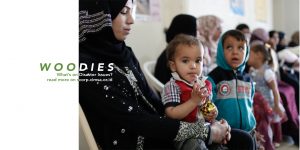
Refugees Face Many Challanges
The migration crisis is one of the most pressing global challenges, as worldwide displacement is now at the highest level ever recorded. Latest global estimates by the UN Commissioner for Refugees (UNHCR) show that 59·5 million people are forcibly displaced as a result of persecution, conflict, generalised violence, or human rights violations. The estimated refugee population reached an unprecedented 19·6 million individuals worldwide in 2015—half of them being children—and the number is steadily increasing, with Syria as the leading country of origin of refugees.
A refugee is someone who “owing to a well-founded fear of being persecuted for reasons of race, religion, health, nationality, membership of a particular social group or political opinion, is outside the country of his nationality, and is unable to, or owing to such fear, is unwilling to avail himself of the protection of that country”.
Refugees experience conditions of vulnerability, marginalisation, and poverty, in addition to high stress of displacement, which seriously affect the health of these populations, including women, children, and older people. In comparison to other immigrants, refugees are more likely to arrive with significant preexisting medical problems, with their health often affected by traumatic events, experiences of discrimination, and limited access to public health services.
Access to essential health services for refugees should be recognised as a fundamental human right. As such, host countries must address refugees’ exclusion from health-care services and their unmet health needs. Donor countries should support efforts to improve access to secure essential health-care services, including for those displaced within or close to their countries of origin who can be most vulnerable to ill health and violence. Greater efforts are needed to strengthen the resilience of health systems to efficiency in refugees health.
Risks to the health of migrants arise at every stage along their journeys, from before the migration process starts, during travel and at transit and destination points. There are also health risks for those migrants who return home, including loss of ties and social networks, social attitudes to returnees and re-exposure to old risk factors.
Sources :
https://www.ncbi.nlm.nih.gov/pmc/articles/PMC5603273/
https://www.ncbi.nlm.nih.gov/pmc/articles/PMC6182765/
